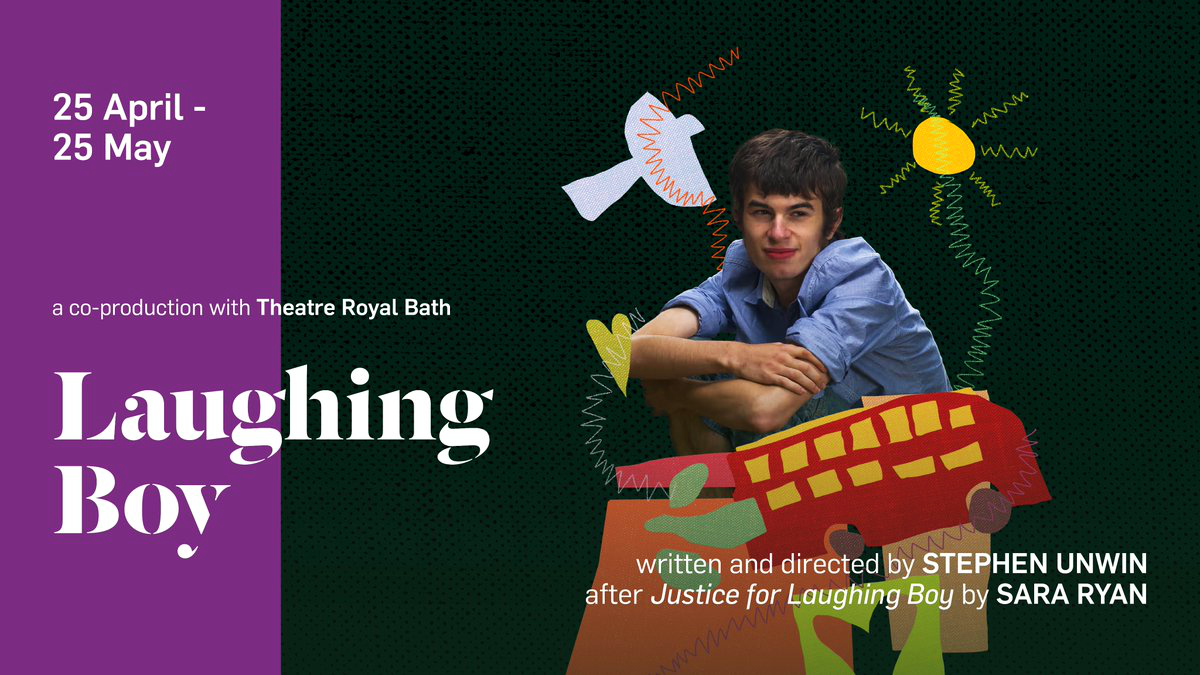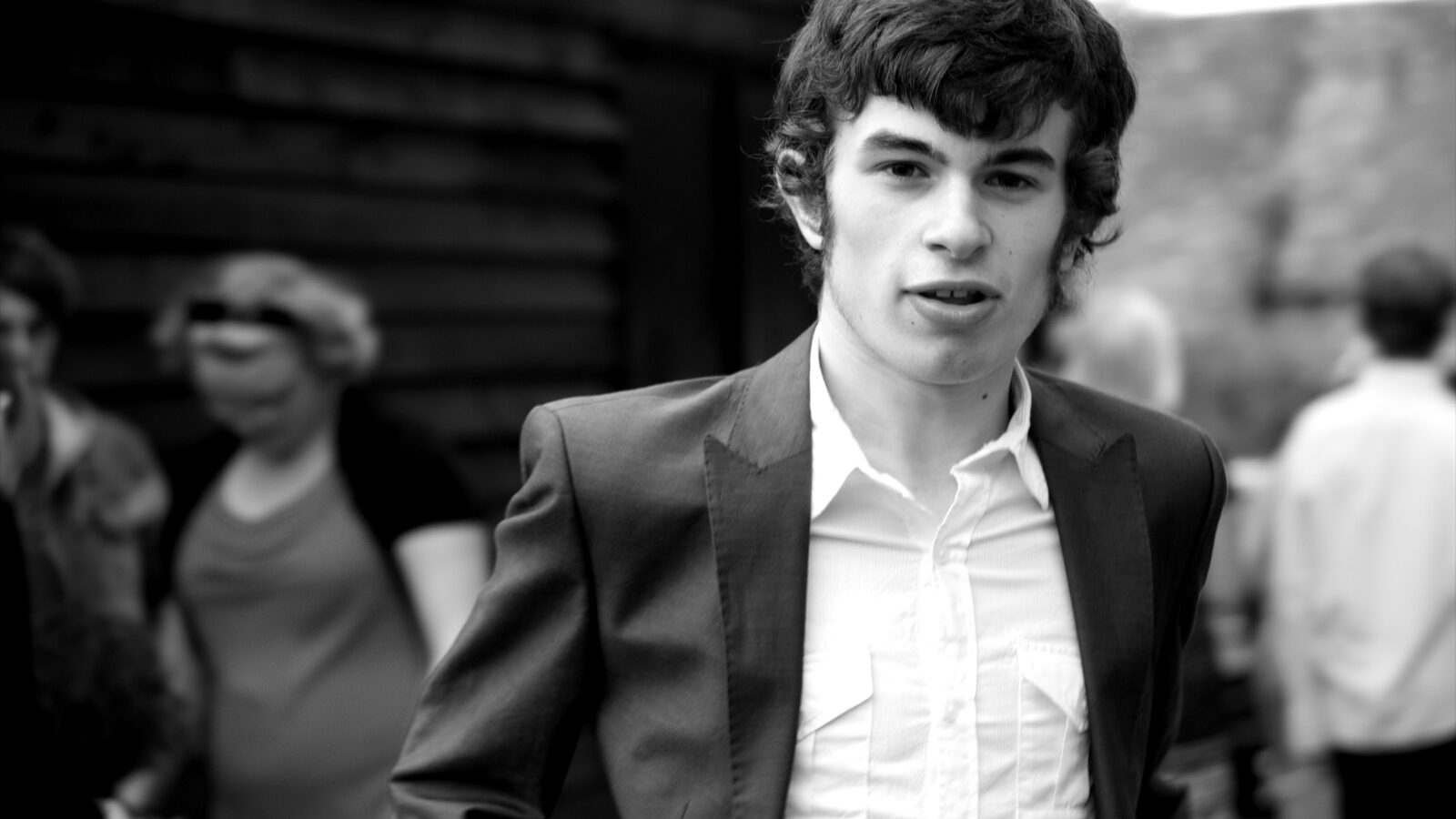It was just over 10 years ago, on 4 July 2013, when 18-year-old Connor Sparrowhawk, known as Laughing Boy or LB, drowned in the bath in a short-term assessment and treatment unit run by Southern Health NHS trust in Oxford. Connor was autistic and had a learning disability and epilepsy.
I met his mother, Sara Ryan, at a disability event in 2015 and watched the #JusticeforLB campaign develop on social media and in the press and did the little I could to support it.
But it wasn’t until I read her brilliant book Justice for Laughing Boy in 2018 that I really started to understand what had happened and why it mattered so much.
It’s personal
A few years ago, armed with that book, I set out to dramatise the story for the stage; Laughing Boy will premiere at the Jermyn Street Theatre in London on 25 April.
I wanted to bring the story to the stage partly because it felt personal.
My second son Joey is just a year younger than Connor and, like Connor, has learning disabilities and epilepsy. Like Connor, he needs help with certain things. Also like Connor, he generates enormous joy in his family and friends, and laughter and love surround him wherever he goes.
But there the similarities end. Because Connor was taken from his family home and plunged into a hell that is almost impossible to comprehend.
Slade House (now thankfully closed) was one of the deeply dysfunctional NHS institutions set up to help (mostly) autistic people whose care has broken down and who could benefit from a short, focused intervention.
The dreadful fact is, however, that these places are not fit for purpose. Autistic people and those with learning disabilities are often locked away in them for months, years even, largely forgotten about, except for their desperate families who do whatever they can to get them out.
Connor spent 107 miserable and lonely days in Slade House; no proper assessment was made, no treatment offered, his freedoms were restricted, visits were controlled and, finally, despite repeated warnings, he was left unattended in a bath where he drowned while having an epileptic seizure.
In the face of the family’s unimaginable grief, a growing campaign for justice was created, not just to establish Southern Health’s (frequently denied) responsibility for this entirely avoidable death of a healthy young man but also to expose the many cases of neglect, cruelty and abuse.
This campaign was a model of its kind, drawing together people of good will from many backgrounds and with different skills, who found themselves confronted by an appalling culture of corporate buck passing, dead-eyed denial and the vilest kind of victim blaming.
Eventually, the world took notice.
I want not just to tell audiences about what happened to Connor and his family but also to help them understand the difficulties faced by so many people and those close to them today.
Drama versus realism
It felt strange trying to give dramatic shape to a group of people who are – with one tragic exception – very much still with us. I was determined to respect their experiences and allow audiences to feel something of their grief, their rage and their determination to create a better world. But, of course, I knew it also had to be a vivid drama. Striking the right balance was hard.
Fortunately, I had two things on my side.
The first was Sara’s book, which tells us so much about the everyday life of Connor and his family. She lets us in a way that is honest, revealing and, as with all the best writing, rich with contradiction.
She offers an overwhelmingly powerful and detailed account of what led up to her son’s death and even intersperses the book with brief imaginary dialogues with Connor which I have been able to transfer almost verbatim.
She also explains (and celebrates) how the #JusticeforLB campaign emerged and achieved so much in the face of bureaucratic obfuscation and the massed ranks of well-paid chief executives and their expensive lawyers.
I was also grateful to have Sara’s unwavering support for the project and have been constantly touched by her willingness to check my factual errors, correct my misunderstandings and prompt me to be better, bolder and braver.
I would readily understand if she felt she couldn’t face revisiting the pain, but I think she knows that one of the best ways of working for the rights and dignities of people with learning disabilities today is to show just how badly things can go wrong.
Adapting a story like this for the stage is quite a challenge; scores of people were involved and the action took place in dozens of locations, but I hope I’ve found a way of presenting it economically, vividly and with a clear sense of purpose. Time will tell.
Maybe I’m a glutton for punishment or perhaps I’m just the right person for the job, but I’m delighted to be directing the play too. Certainly in writing it, I imagined exactly how the production might look and sound.

Finding a theatre
It took time to find a theatre that was prepared to invest the money, resources and reputation to stage it, reflecting perhaps the low profile that people with learning disabilities enjoy even in – especially in, perhaps – establishment circles.
It says something that it is the unsubsidised commercial theatre that has taken it to heart. I’m grateful, touched and moved that artistic director Stella Powell-Jones and executive producer David Doyle at the tiny Jermyn Street Theatre are presenting this spring, in co-production with Danny Moar, who is chief executive of the Theatre Royal Bath. After that, hopefully, the play will tour.
I feel a real responsibility to honour Connor’s memory in the best way I can: his family, his friends and everyone who was involved in the campaign deserve no less.
This is precious cargo and I’d better not mess it up.
Justice for Laughing Boy is no dusty memoir: it is a living, breathing campaign that has achieved so much. But there is still so much to do if people like Joey are to be granted the fundamental human rights and dignities that Connor was so brutally denied.
For the dreadful fact is that the approximately 1.5 million people across the country who have some level of learning disability are still forgotten, neglected and mistreated.
The culture of appalling negligence and evasion described in Justice for Laughing Boy is everywhere, and Connor Sparrowhawk wasn’t the first young person to die in an institution supposedly set up to help and, tragically, won’t be the last.
In 2017, I wrote a play called All Our Children about the Nazi persecution of disabled children which was staged at Jermyn Street. Tragically, Laughing Boy is its dreadful and logical sequel.
A change has to come. Maybe this play can, in some small way, help to make a difference.

Laughing Boy by Stephen Unwin, after Justice for Laughing Boy by Sara Ryan, is at the Jermyn Street Theatre from 25 April and at the Theatre Royal Bath from 4 June. This article is taken from www.stephenunwin.uk
Photos: Sara Ryan





